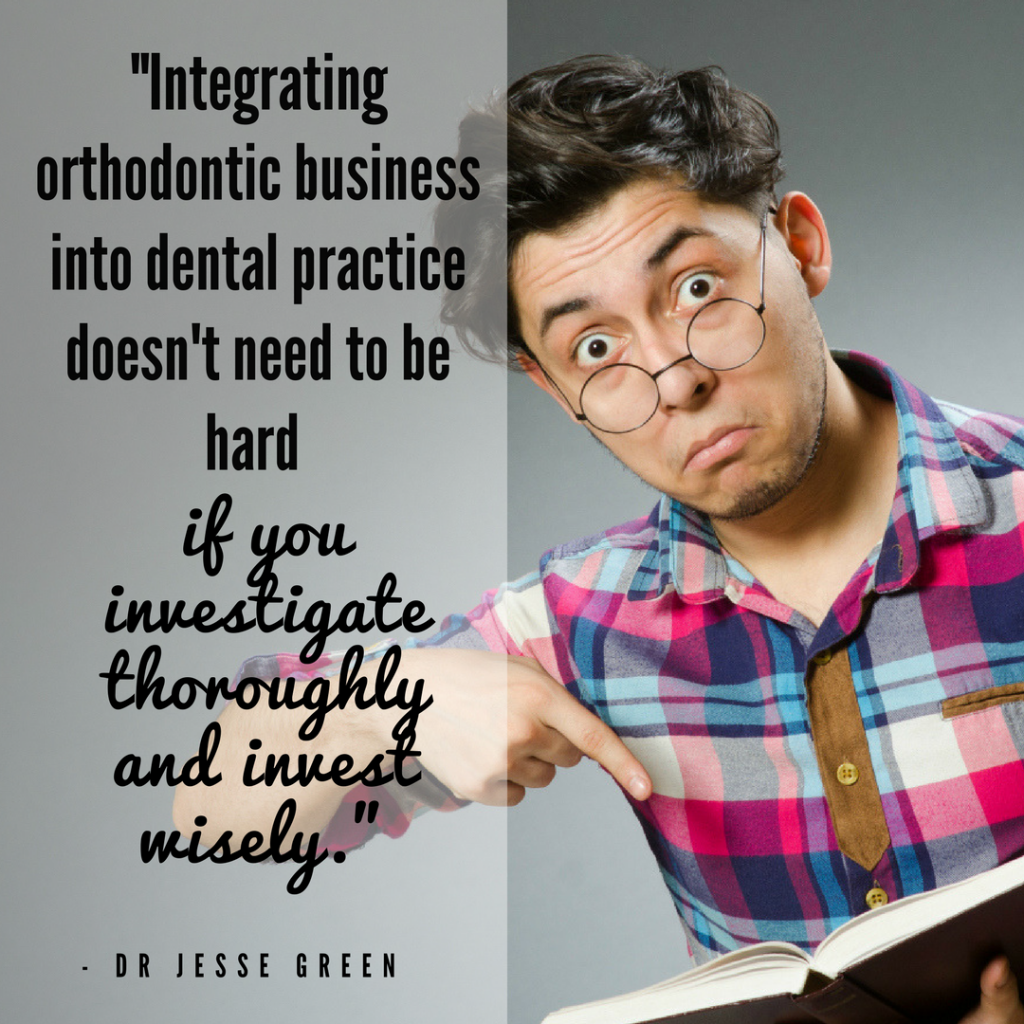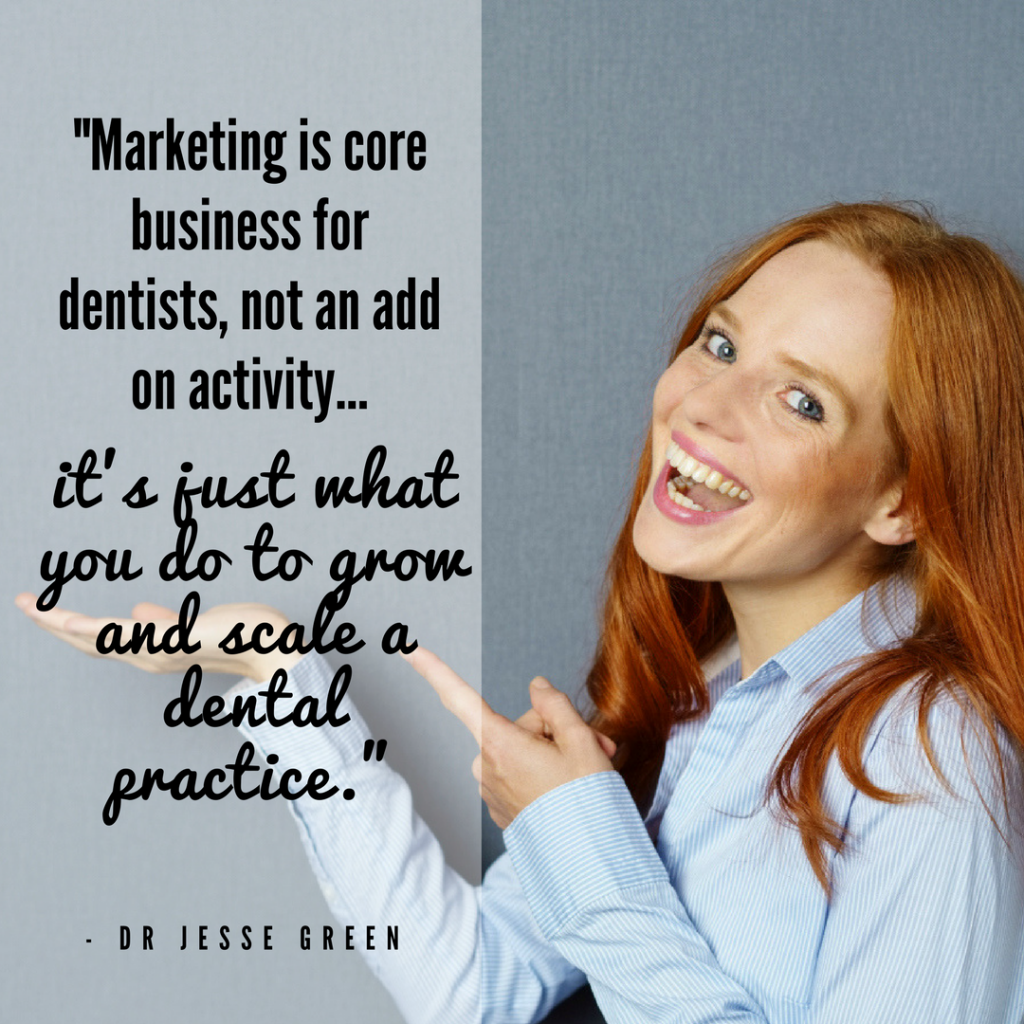Many dentists resist integrating orthodontic business into their practice. Seeing it as yet another ‘to do’ on their already endless list, it can very easily be thrown in the ‘too hard’ basket.
But before you get too carried away and make a long shot into the ‘too hard’ hoop, consider this:
Orthodontic business is one ideal way to re-inject energy and enthusiasm into your dental practice.
It provides the opportunity to expand your professional network, as you connect to other like-minded technical professionals through training.
Integrating new technical skills into your repertoire challenges you to grow professionally. As you grow, the team and systems that support you must also grow.
In pure revenue terms, it can add thousands to your dental business bottom line.
So maybe now could be the time to give orthodontic business a second thought. Let’s dive in and investigate further.
Orthodontic Business Is Too Hard For Dentists….Or Is It?
Integrating orthodontic business into dental practice doesn’t need to be hard if you investigate thoroughly and invest wisely.
There is little doubt that historically orthodontics has been a closed shop to dentists. Back in the day, there was a reluctance among specialists to share their wisdom and skills. But, that is changing now.
Whether the driver is market demand, the operating environment or something else, it doesn’t really matter. The bottom line is, a technically and commercially savvy dentist can take considered steps to integrate orthodontics into her business.
There are now orthodontists around the world – and here in Australia – who are happy to train and support dentists with robust technical training. What’s more, they provide the ongoing support required to ensure new skills are fully integrated in practice.
The understanding is that like all new things, orthodontic treatment skills take time to develop. It follows that appropriate support is in place to navigate this territory.
Does this mean signing up for lengthy, time-consuming studies and over extending financially? Not necessarily. Just as you would with the introduction of any new service into your dental practice, you’d do the homework.
You’d consider questions like:
What’s the time and dollar investment for training and production?
What kind of support is provided once training is completed?
Will you have the opportunity to connect in with a support community?
Can you leverage their clinical systems?
What equipment is required?
Can they help identify and manage the technical, treatment and financial risks?
If these questions can be answered, perhaps orthodontics is worth considering.
You will also know to look out for orthodontic products and training delivered by clinicians who share your values around patient care. They will understand the learning curve you’re on and walk with you every step until you’re confident.
How Do I Sell Orthodontic Treatment
While many dentists might feel totally comfortable with the technical aspects of acquiring orthodontic treatment skills, they’re less confident with the ‘sell’
It can be a real mental hurdle to jump, but it doesn’t need to be.
If we work with our patients as a trusted advisor, we don’t need to sell anything.
Instead, we simply have conversations with our patients. These conversations show we’ve listened, we care, and that the person in front of us matters.
Hey Steve, have you ever thought about straightening your teeth in the past? Was there a reason you didn’t proceed?
Mary, have you ever thought of having that missing tooth replaced? Why didn’t you have the treatment?
Simple, thoughtfully worded questions will provide insight to the barriers to treatment. It will also help you present treatment options that meet their needs.
The big news is, this approach is not specific to orthodontic treatment. Savvy dentists (and orthodontists!) will already do this. As a dentist coach, I see it as a must-have skill for any dental professional interested in growing and scaling their practice.
How Will I Market Treatments Now I’m Doing Orthodontic Business?
One thing many dentists find difficult is the marketing aspects of dental business.
They perceive it as a separate activity from clinical practice. The truth is, marketing is core business for dentists, not an add on activity. If that’s how you’ve been approaching it, time for a mindset shift. Marketing is just what you do when you grow and scale a dental practice.
Let’s look at it this way:
Each time you speak with a patient about the most ideal way to care for their teeth – that’s marketing.
When you share a story about a patient who overcame their fear of the dentist and invested in treatment – that’s marketing.
When you’re front office team answer the phone using the right script and ask for a referral – guess what? That’s marketing.
You have a conversation, build rapport, listen to their needs, solve their problems. All marketing.
What does this mean? It means you’re already marketing. And you can do it for orthodontic treatments too when they become part of your business.
Build a solid framework around the introduction of orthodontic business and it will pay dividends. You can do this by in different ways: pre-framing patients so they know new treatment is coming. Just as you would for other patient communications, you might also develop phone and treatment room scripts for your team and connect via regular newsletter, blogs and social media posts.
Looking at your orthodontic business marketing this way makes it manageable and doable.
Final Words
Fear of the unknown and being uncomfortable can prevent us from taking steps forward and growing.
Whether it’s in a personal or professional realm, progress and change will always feel somewhat uncomfortable. If that’s where orthodontics is for you, I encourage you to consider the possibilities before discounting it as a way to grow both you and your business.
And for those among wanting to gain greater confidence about ‘selling’, the upcoming Savvy Dentist workshop is perfect for you. Present Like A Pro: Learn How to Sell Without Selling Out is suitable for practice owners, associate dentists, oral health technicians, practice managers and treatment coordinators. We have just a couple of spots remaining for this event. Join us on the Gold Coast this week (15 – 16 March 2018). We’d love to see you there.



